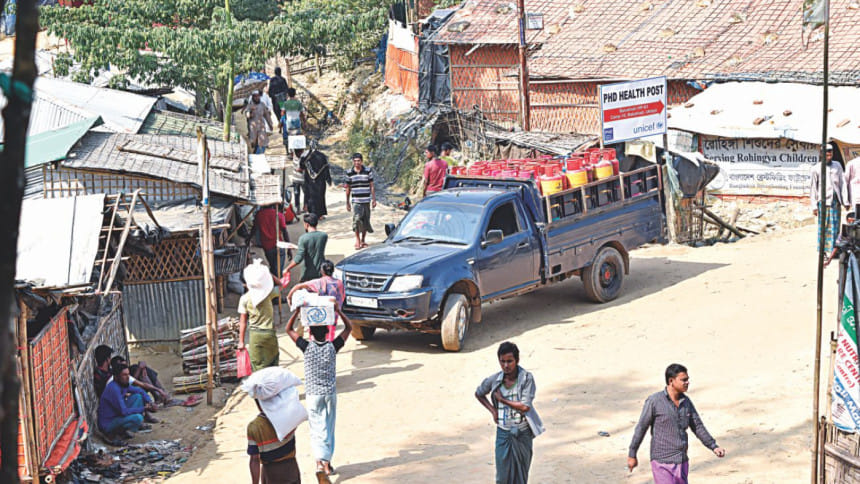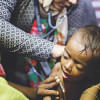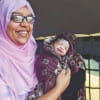Tree felling falls

Exhausted Rohingyas walking with loads of firewood on their heads used to be a common sight around the refugee camps in Cox's Bazar, raising concerns about the long-term impact on the forest.
But the situation is gradually changing since aid agencies started supplying Liquid Petroleum Gas (LPG) and Compressed Rice Husk to the refugees for cooking late last year.
"Now, I seldom go to the forest as I received 19 kilograms of compressed rice husks this month [November]," said Mohiullah of Balukhali camp in Ukhia.
"In the past, I had to walk for about four hours to go to the forest every alternate day and it was hard labour," said the father of six children.
Currently, some 168,043 Rohingya families live in camps at Ukhia. Of them, some 1,00,000 families received rice husk and another 3,600 families got LPG sets, project officials said.
However, many Rohingyas who are yet to receive the fuel still regularly collect firewood by cutting trees, locals said.
Already, some 6,500 acres of forest between Kutupalong and North Hinla in Teknaf has been razed since the influx begun in August last year, according to the Cox's Bazar South Forest Department.
"But recently, fewer people are felling trees after fuel distribution began. But not all families are receiving them," said Mohammad Humayun Kabir, divisional forest officer at the department.
Mohammad Yunus, community leader in block G-5, Jamtoli camp, said he received a kerosene stove a few days ago.
"I do not go to the forest for firewood anymore, although the stove is not easy to use. It takes too much time to cook food," said Yunus, who has 15 children from three wives, all living in the camp.
In September this year, donor agencies launched a joint project to provide 125,000 host community and refugee families with LPG stoves and cylinders to prevent deforestation.
The project is being implemented by the Food and Agriculture Organisation, the International Organisation for Migration, and the World Food Programme.
The families that received LPG stoves refill the cylinders with multi-wallet transfer solution, a system that provides cash assistance, said project officials.
For reforestation, 45,000 trees and 700,000 grass cuttings have been planted under this project, they said.
"Ensuring sustainable access to LPG for cooking is a critical piece in the jigsaw of addressing deforestation and reforestation," said Peter Agnew, FAO programme manager in Bangladesh.
"It eliminates the demand for firewood, which in turn allows us to replant deforested areas with confidence, knowing that new trees will not be dug up and sold as kindling," he told The Daily Star in an email.
After the August 2017 military crackdown at Rakhine state in Myanmar, over 700,000 Rohingyas fled to Bangladesh. They are now sheltered at Kutupalong and Balukhali in Ukhia upazila.
Since the influx, agencies had been providing them with shelter kits, medical assistance, food, education materials, and other aids. However, as there was no cooking fuel, the Rohingyas started clearing chunks of the forests to collect firewood.
In April last year, Refugee Relief and Repatriation Commissioner Mohammad Abul Kalam told reporters, "The Rohingya people are clearing forestland equal to four football fields every day for collecting firewood."
Data from the Inter-Sector Coordination Group (ISCG) show that each Rohingya family needs five kilograms of fuel per day.

 For all latest news, follow The Daily Star's Google News channel.
For all latest news, follow The Daily Star's Google News channel. 








Comments